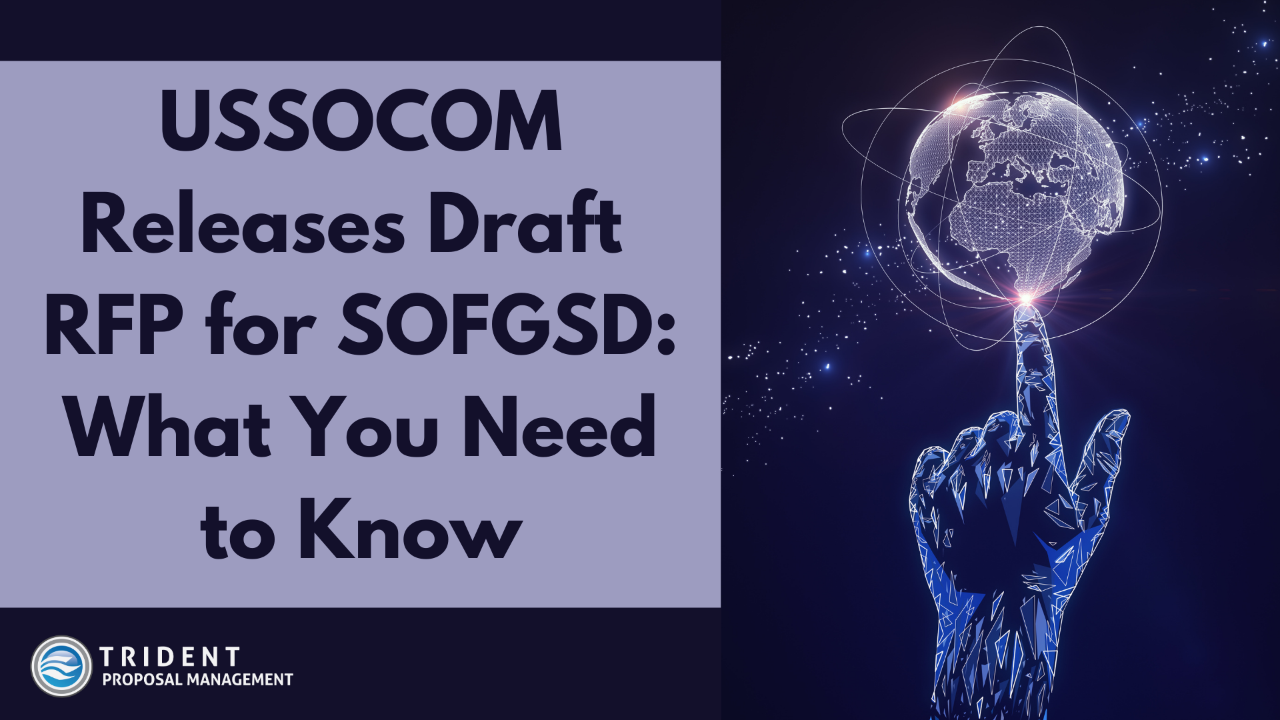Renew Your Proposal Playbook in 2022
May 17, 2022
Actualizing the fundamentals of Proposal Management to our work world in 2022.
In some cases, it is smart to leave an “OG” untouched. If you were around in the 1980s to see CocaCola try out “New Coke”, you know what I mean. In other situations, modifying a classic turns out to be a necessity, or a timely and wise call.
Proposal Management is both a well-defined craft and a science of sorts. We can’t tell exactly when it was first defined, but we know for sure that it was materialized from the collective knowledge of bidders, who documented the actions and lessons learned that led to their successful bids and contract awards.
In the late 1990s and early 2000s, some of the best proposal managers in the industry knew the local Kinkos and FedEx office managers and staff by first name. They also played softball or poker with their local “Delta Dash” team, the original last resort before there was UBER; just in case they had to fly a hard copy of a proposal to the KO in order to make a last-minute deadline.
As recent as 2015 most federal contractors seeking new office space had at least one, and sometime two, conference rooms designated as a “war room” and a “proposal room” to host the teams that would relentlessly work in multiple-year IDIQ pursuits, or frantic two-week task order turn arounds. That was a thing until recently.
Fast forward to 2022, and the “almost post-COVID 19” era. War rooms have been replaced by cloud collaboration work rooms managed via Google Docs, Other Transactional Authority (OTA) driven solicitations are common, we don’t have to show “past performance” on every TO from any given IDIQ, and as of late; digital submission of proposals have replaced the excuse “the Delta Dash flight was delayed” with “I clicked submit a 2355, but my computer froze”. Some things change, other’s don’t.
Technological progress, modifications of the FAR and the solicitation process, and the lessons learned in the latter part of the 2010s and early 2020s clearly beg for an update to the classic proposal management processes that were defined in the late ‘90s, and taught to most of us as canon.
Review your every process
I’m not talking here about changing “he/she” for “they/them” in the instructions (but while you are at it, do so!) or replacing “send fax 1 hour ahead of deadline” with “confirm receipt via email at least 15 minutes before deadline”. I’m talking about questioning every step of the process as defined and looking for those steps that we do, because either the rules or the available technology forced us to take those steps.
I can assure you that having three editing cycles before a “Pink Team”, followed by a “Red Team”, and then yet another “White Glove” review, was more a function of having to reconcile feedback taken via paper notes, yellow stickies, and disparate emails from folks reviewing proposals in isolation, than it was someone thinking “I’d love to do the same step five times and correct the same mistakes as many times!”.
Cloud-based meetings and editing rooms allow the best-run proposal teams of today to work on a proposal around the clock, across state lines, and even across countries, so that instead of having two, three, or four review cycles you just have one well-run review period and get the same if not better results as before.
Modify your processes
Once you scrub your processes, don’t just try to make the steps faster and take a moment to ask yourself “why do we do this at all?” You will be surprised at how many times companies miss the opportunity to drastically improve on their efficiency and effectiveness by merely wanting to make a process “go faster” when new technology and regulations give us the freedom to completely up-end old processes and put newer and more efficient ones in place.
I mentioned the review cycle vs. multiple color team reviews above. How about having an external review team to review your proposal work as it is ready, and give you feedback as a “proxy evaluation board” and disinterested third party? New IT security measures and cloud review applications allow you to tap onto these resources wherever they may be, via VPN or VTC, and on demand. In the past you had to fly these SME’s and badge them into your war room. Not any more.
COVID19 changed our work culture and environment. Seize the opportunity and make the most of it, now that we are getting past the ill placed comfort on the “binkey” of having to be in the office, meeting with the team face to face, in order to get great work done.
Try and train on the new processes
Some things will work and some, like “New Coke”, won’t. One thing is for sure; take the time to train your team in the newly created and documented processes you want them to work in. Some changes are easy and obvious. Others are more subtle, like my changing from double space after period on the first part of this blog vs. the newer and improved approach to use only one space (thank you Word Perfect ;) ).
Taking the time to train, and even to have an external party evaluate your proposal team, is well worth your time and money. “You fight like you train, so train like you want to win” - enough said.
There are classic processes and plenty of new ones that build on the OG, and make it more efficient and effective. If you are looking for suggestions, you can search for a few, or you can check Trident’s FastProp process. It is a good place to start if you need a nudge in the right direction.
The bottom line is simple - 1990 called, and wants its proposal process back. Spend time evaluating your proposal management craft - beyond saving you time and money on proposals, it may very well help you win the next proposal that will help transform your business.



